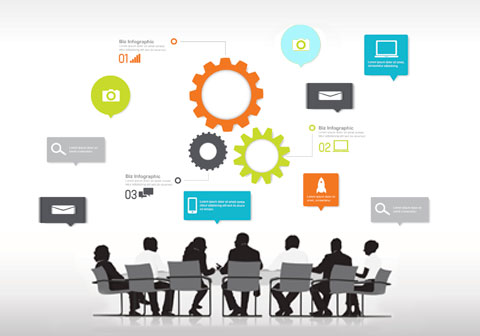
The Game’s Afoot, and It Means Business.

The generation of digital natives just now beginning to enter the workforce have gaming built into their DNA. To compete for the best and the brightest, and get the most from their performance, it will be necessary to provide a gamified working environment.
Ender’s Game is a science fiction novel by Orson Scott Card, and the basis for a recently released motion picture starring Harrison Ford (no stranger to the genre). While I have not yet seen the movie, I’ve read the book and it provides some provocative thoughts regarding gaming as a tool for learning. This is certainly not a new concept; games have been used for centuries as a means of teaching and providing training in physical skills. From medieval tournaments to the sophistication of our modern flight simulators, the value of the learning is in direct proportion to the realism and relevance of the experience.
The Evolution of Digital Gaming: From Pong to MMORPGs
It’s been more than four decades since Atari’s Pong introduced us to digital gaming, and anyone who has been exposed to the current generation of Massively Multiplayer Online Role Playing Games (MMORPGs) can attest to the high degree of realism achieved with these platforms. Not physical realism, of course; you can’t control the world using your thumbs. The realism here is in the player-to-player relationships and the need to build teams, assign and accept responsibilities, manage resources, and engage in a wide range of activities that simulate and develop real-world skills in a high-pressure environment. Gamers typically spend dozens, if not hundreds of hours in their favorite virtual environments engaging and building relationships with other players who form their teams.
The Daedalus Project: the Psychology of Gaming
Nick Yee is a Pd.D. with degrees in psychology and communication. He has been studying self-representation and social interaction in virtual environments since 1999. While active, his Daedalus Project compiled survey data from more than 40,000 game players. Although he put the project into “hibernation” in 2009, his findings are still available online at The Daedalus Gateway website. What becomes very apparent in reading through his findings is the very practical skills that can be developed through participation in MMORPGs.
Skill Building through Simulated Interaction
In Ender’s Game, both physical and digital gaming are used to evaluate the potential of young children and train them to be military commanders. Published in 1985, MMORPGs were not specifically part of the story, but since the digital games were being monitored and manipulated by the instructors, aspects of relationship building are present. A key point is that learning through simulated interaction not only builds skills, it helps the students learn and cope with their inner selves and individual limitations.
Big Business is Turning Work into Play
If you haven’t heard the term “gamification” yet, you will soon. Enterprise gamification speaks to using digital technology to turn the work environment into a play environment. Gartner Research predicts that this year over 70% of the Forbes Global 2000 organizations will have at least one gamified application, and that by 2015 we’ll see half of the organizations that manage innovation processes gamifying those processes.
Gamification in Business Rewards
One of the difficulties inherent in most workplaces today is the separation that exists between each person’s job and the final product that their combined labors ultimately deliver. The greater the separation the less engaging the work becomes, and the less personal the psychological and physical rewards. Gamification provides a visible system for measuring contribution and achievement, creates greater employee engagement and loyalty, and ensures a more merit-based system of rewards. Games are not just for teaching and training, they’re also for maximizing performance in the workplace. This message also comes through in the conclusion to Ender’s Game.
Enter the Digital Natives: Gamification Required
I won’t provide real-world examples here, but you can find several in an article published in InformationWeek magazine, and on the gamification website. An important thing for large employers to recognize, however, is that the generation of digital natives just now beginning to enter the workforce have gaming built into their DNA. To compete for the best and the brightest, and get the most from their performance, it will be necessary to provide a gamified working environment. If you don’t, someone else will.
Infoweek Article: https://www.informationweek.com/7-examples-put-gamification-to-work/d/d-id/1104211

Very cool post! Recently I was looking for CRM software for my own company’s use and came across several platforms that have gamified their software. Ranging from giving users levels, to achievements to perks; many different kinds of incentives to get people working and staying motivated. Also the gamification of CRM platforms makes it easy to measure performance and metrics. I think the fitness industry is embracing these concepts as well with mobile fitness tracking apps like Fitocracy, Endomondo, Runkeeper, Mapmyrun.